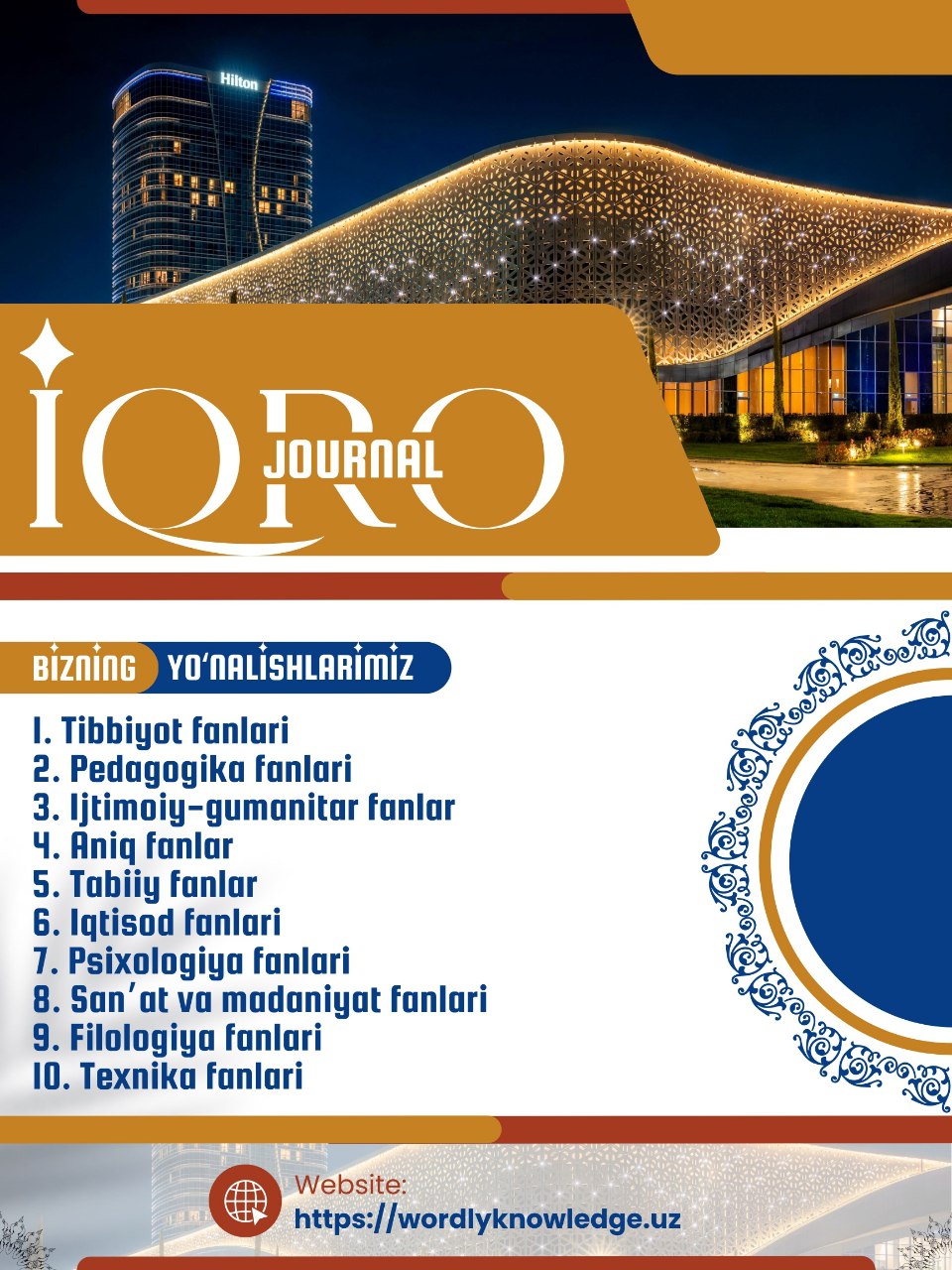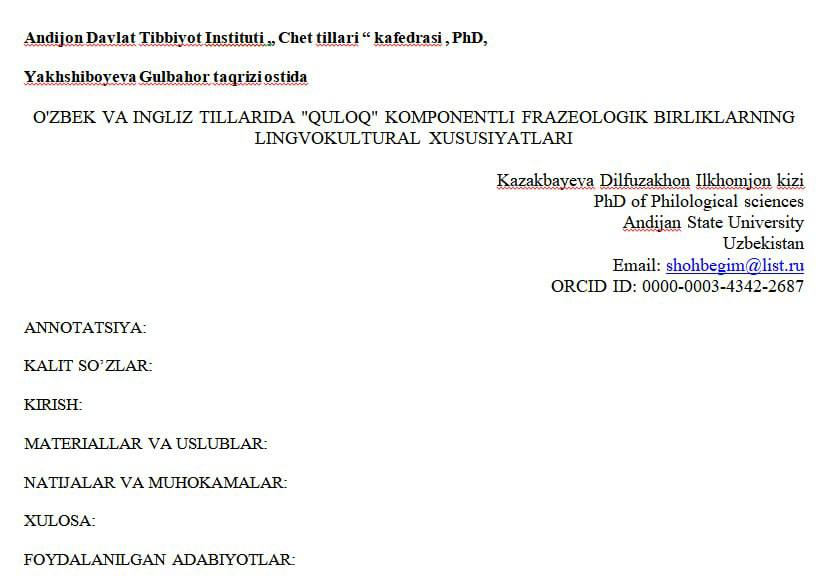PREVENTIVE SPEECH ACTS IN DIFFERENT SOCIOCULTURAL CONTEXTS: A PRAGMATIC ANALYSIS
Under the supervision of Bozorov Zayniddin Ashurovich, Associate Professor of the Department of Uzbek Language and Literature, Russian and English Languages, Bukhara State Medical Institute
Keywords:
Preventive speech acts, sociopragmatics, politeness, cross-cultural communication, pragmatic adaptation.Abstract
Preventive speech acts play a crucial role in communication by anticipating potential issues and mitigating negative outcomes before they occur. These speech acts vary across sociocultural contexts, reflecting differences in politeness strategies, social hierarchies, and pragmatic conventions. This study aims to analyze the pragmatic functions of preventive speech acts in different cultures and explore how sociopragmatic factors influence their usage. By examining real-life discourse examples and existing linguistic frameworks, the research highlights the role of politeness, power dynamics, and context in shaping preventive speech acts. The findings contribute to a deeper understanding of cross-cultural communication and pragmatic adaptation strategies.
References
1.Blum-Kulka, S. (2019). Interlanguage pragmatics: The study of cross-cultural communication. Cambridge University Press.
2.Brown, P., & Levinson, S. C. (2017). Politeness: Some universals in language usage. Cambridge University Press.
3.Culpeper, J. (2020). Impoliteness and interaction: A sociopragmatic approach. Routledge.
4.Diani, G. (2018). Preventive speech acts and face-saving strategies in cross-cultural discourse. Journal of Pragmatics, 134, 25-39. https://doi.org/10.1016/j.pragma.2018.06.010
5.House, J. (2021). Pragmatics in language teaching and intercultural communication. Springer.
6.Ishihara, N., & Cohen, A. D. (2020). Teaching and learning pragmatics: Where language and culture meet. Routledge.
7.Kecskes, I. (2019). Intercultural pragmatics. Oxford University Press.
8.Leech, G. (2018). The pragmatics of politeness. Oxford University Press.
9.Matsumoto, Y., & Okamoto, S. (2019). The role of honorifics in preventive speech acts: A Japanese perspective. Language & Society, 48(2), 189-210. https://doi.org/10.1017/S0047404518001203
10.Spencer-Oatey, H. (2020). Culturally speaking: Culture, communication and politeness theory. Bloomsbury Publishing.














